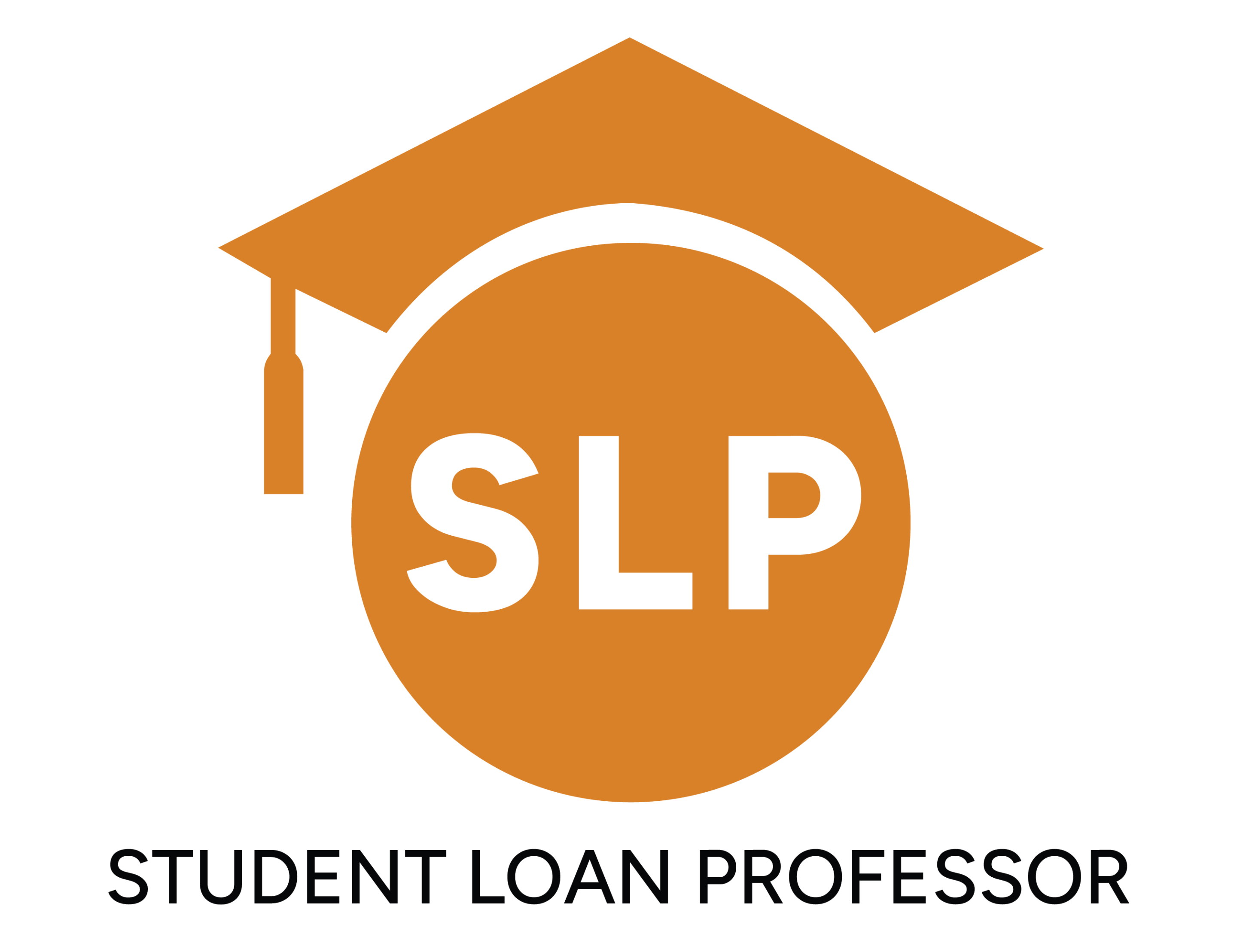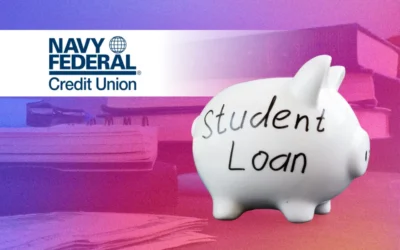Student loan refinancing means replacing one or more of your existing student loans with a new loan from a private lender. The new loan usually has a lower interest rate and often comes with new repayment terms, such as a longer or shorter loan term.
You can refinance both private and federal student loans.
Refinancing federal loans through a private lender may not be ideal for some borrowers, as it leads to the loss of federal benefits like income-driven repayment plans and Public Service Loan Forgiveness (PSLF).
Key Takeaways
- Refinancing consolidates loans with a private lender, potentially lowering interest rates and payments.
- Federal loan refinancing forfeits benefits like income-driven repayment and loan forgiveness options.
- Eligibility relies on credit score, income, debt-to-income ratio, and loan balance.
- Selecting terms impacts monthly payments, total interest, and financial flexibility long-term.
Pros and Cons of Refinancing Student Loans
Pros
- Lower Interest Rates: Refinancing often allows borrowers to secure a lower interest rate, reducing the total loan cost.
- Simplified Payments: Consolidating multiple loans into a single payment simplifies student loan debt management and reduces the likelihood of missed payments.
- Flexible Terms: You can choose a repayment term that suits your financial situation, such as a faster payoff in exchange for lower monthly payments.
- Cosigner Release: Some student loan providers allow borrowers to release a cosigner as long as specific conditions are met. This can be beneficial for those who want to take full financial responsibility.
Cons
- Loss of Federal Protections: Refinancing federal loans means forfeiting access to benefits like income-driven repayment plans, loan forgiveness programs, and deferment options.
- Credit Checks: Private lenders often require a good credit score and a stable income, making it harder for some borrowers to qualify.
- Variable Rates: Refinanced loans often offer both variable and fixed interest rate options. Variable rates may change with market conditions, which could affect your monthly payment amount.
- Long-Term Interest: Extending the loan term reduces monthly student loan payments, but you’ll end up paying more interest overall.
Eligibility Criteria for Refinancing Student Loans
When you apply for student loan refinancing, the primary factor lenders consider is your creditworthiness.
Here are a few essential eligibility criteria that determine whether you’ll be able to refinance student loans:
- Credit Score: Most lenders require a minimum score of 650, with better rates available to those in the 700s or higher. That means the higher your credit score, the lower the monthly interest you’ll have to pay, lowering your overall repayment over the years.
- Income and Employment: Having a steady income and stable employment history increases your chances of lender approval.
- Debt-to-Income (DTI) Ratio: This ratio compares your monthly debt payments to your income. A lower DTI improves the likelihood of approval because it shows it’s unlikely that you’ll default on a monthly payment.
- Loan Balance: Some lenders require a minimum loan amount for refinancing.
If you don’t meet these criteria, qualifying for refinancing either federal or private student loans might be difficult. The best workaround is to try to improve your credit score or to get a cosigner who will be responsible for your student loan payments if you fail to repay your loan.
What Happens When You Refinance a Student Loan?
Refinancing a student loan involves taking out a new loan from a private loan provider to pay off existing loans, often with the goal of reducing the interest rate or monthly payments.
Here’s a step-by-step breakdown of how a typical refinancing process occurs.
Research and Rate Comparison
Start by exploring different private student loan providers to compare your refinancing options. Each lender may offer different interest rates, loan terms, and special perks, so take your time to find the best lender that suits your financial situation and goals.
Many lenders offer a prequalification tool that allows you to check estimated rates without affecting your credit score, thanks to a soft credit check. They’ll also provide a student loan refinance calculator so you can see how much you’ll likely pay.
This tool can help you gauge your options without fully committing to an application, giving you a clearer picture of what’s available. It also gives you a chance to decide whether you’ll need a cosigner or you can handle the new student loan debt on your own.
When choosing a lender, don’t just focus on the student loan interest rates. Ask about the repayment loan terms and whether there are any additional benefits, such as interest rate discounts for automatic payments.
The discount might be as low as 0.25%, but it can still amount to a lot of money over the loan term.
Also, remember that refinancing rates fluctuate based on the lender and current market conditions, so choose a lender that offers repayment flexibility and good customer support.
Application and Approval
After selecting a lender, you’ll need to submit a formal application to start the refinancing process.
At this stage, lenders conduct a hard credit inquiry, which may slightly reduce your credit score temporarily. They assess your financial reliability through this credit check, considering factors like your income, employment history, and DTI ratio.
If your credit score is relatively high and your DTI is relatively low, lenders will usually consider you a low-financial-risk borrower, which leads to better terms.
Once your application has been approved, you’ll move on to selecting your specific loan terms.
Choosing Your Terms
Most lenders will allow you to tailor your refinanced federal or private loan according to your financial needs. They’ll typically ask you to choose the loan length which affects your monthly payments.
A shorter repayment term means higher monthly payments but leads to lower overall interest paid over time. This is a cost-saving option if you’re uncertain about your long-term financial stability.
In contrast, longer terms lower your monthly payments, providing immediate budget relief, but they also increase the total interest over the loan’s lifetime.
Some lenders offer the choice between fixed and variable interest rates. Fixed rates remain the same for the loan’s duration, providing stability and predictability.
Conversely, variable rates are usually lower at first but can change according to market conditions, leading to higher payments over time.
Ultimately, your choice of loan terms should reflect your risk tolerance and whether you plan to pay off the loan quickly or over the full term.
Loan Payoff by the New Lender
Once the agreement is finalized and you’ve chosen your terms, the new lender will take over and pay off your existing loans. Student loan consolidation is also an option, where you close off your old loan accounts and establish a new one with the refinanced terms.
Having a single loan to manage, rather than juggling multiple loans with different due dates and interest rates, can significantly simplify your financial obligations.
This step is especially helpful if you previously held a mix of federal and private loans or multiple private loans from different lenders.
New Repayment Plan
Once the refinanced loan is in place, you’ll begin making payments to the new lender based on the terms you selected. If your refinanced loan has a lower interest rate or an extended loan term, you may notice a reduced monthly payment, freeing up room in your budget.
If your lender offers automatic payment discounts, you can cut down your costs even more over time due to a potential interest rate reduction.
Timely payments are essential because missed payments can impact your credit score and incur penalties. Some lenders offer biweekly payment options, allowing you to pay off the loan faster and save on interest by reducing the outstanding principal sooner.
With this new repayment plan, you can tailor your payments to either ease monthly expenses or accelerate debt repayment, depending on your financial goals.
How Refinancing Impacts Your Financial Future
Refinancing can offer long-term financial benefits if managed strategically.
Lower monthly payments can increase your cash flow, allowing you to put money toward other goals, like saving for a home, investing, or paying down other debts.
Keep in mind that refinancing can affect your credit score, but it depends on how you manage your new loan. Initially, your credit score may dip due to a hard inquiry, but timely payments can help improve it over time.
Consistently making timely payments on your refinanced loan can boost your credit over time, showcasing your financial responsibility and enhancing your credit profile. Conversely, missed payments could harm your score and impact future borrowing.
Should You Apply for Student Loan Refinancing?
Deciding whether to refinance student loans depends on your financial goals and eligibility.
Refinancing can make sense if you’re aiming for a lower interest rate to reduce monthly payments or total loan costs. It’s especially helpful if your credit score or income has improved since you initially borrowed.
However, if you have a federal student loan, you might want to consider a different strategy so you don’t forfeit the federal loan benefits. Federal loans offer unique benefits like loan forgiveness and income-driven repayment plans that are forfeited upon refinancing.
Ultimately, if you have a good credit score and a stable source of income, you can easily make student loan refinancing work in your favor.
Take Control of Your Student Loan Repayment
Refinancing your student loans can get you lower interest rates, streamlined payments, and new financial possibilities. Best of all, our refinancing assistance is free, ensuring you get expert guidance without additional costs.
If you’re unsure how to proceed or if refinancing is right for you, book a consultation with one of the Student Loan Professor’s experts to take control of your student loan repayments.
Brandon Barfield is the President and Co-Founder of Student Loan Professor, and is nationally known as student loan expert for graduate health professions. Since 2011, Brandon has given hundreds of loan repayment presentations for schools, hospitals, and medical conferences across the country. With his diverse background in financial aid, financial planning and student loan advisory, Brandon has a broad understanding of the intricacies surrounding student loans, loan repayment strategies, and how they should be considered when graduates make other financial decisions.





